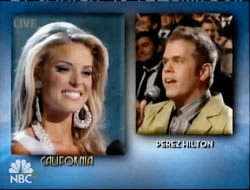
Christian culture enjoys coffeehouse culture and likes to open coffeehouses as a way to minister to the populace by providing a place to convene. Sometimes this is described as “outreach” to the “community.”
The Christian coffeehouse can first be identified by its name. Their names are always either
1. a play on a Biblical phrase (The Upper Room, Daniel’s Den, Jehovah Java)
2. a more subversive spiritual reference (Higher Grounds, Holy Grounds, He-Brew)
or
3. void of any Bible connotation to make non-believers feel welcome, but still have that community-seeking tone that may alert you to Christian beverages lurking inside (Common Grounds, The Crossroads, The Loft).
Upon entering the Christian coffeeshop you will notice that the baristas are especially perky (haha) and that Christian music is playing (this includes Coldplay). Besides these two key indicators, there is not usually a great deal of religious overtone except for perhaps a stray Bible or the latest Focus on the Family mailout lying around. If these factors have not yet tipped you off, note that the drink sizes are probably tall, grande and Goliath, and there is also a message on a chalkboard about their book club. (They are currently reading The Shack. All are welcome!) The coffeehouse also hosts musical guests and said chalkboard announces the upcoming musicians as well. Their musical guests will appear very similar to these four examples.
Exhibit A: 
Exhibit B:
Exhibit C:
Exhibit D:
When a Christian coffeehouse is not handy, Christians sometimes convene in Starbucks for bible studies and quiet times, sometimes thinking that a witnessing opportunity may arise. Students at Christian universities and Christian students at “secular” universities also use Starbucks and the like for witnessing stakeouts. They study there and hope someone asks them about their copy of Passion & Purity, Velvet Elvis or Blue Like Jazz that’s lying among their textbooks.
In addition to the potential for outreach, coffee addiction may be one of the few things Christian culture feels it is allowed to have in common with non-Christians. Pastors like to mention their need for espresso in their sermons or in their blogs, and they like to specify the number of shots they order. These pastors (along with worship leaders, deacons, aspiring deacons, homeschooling moms and bros in Christian solidarity) enjoy talking about their reliance on caffeine, often on facebook and twitter. They would not talk as enthusiastically about any other addictive stimulant, but for some reason this one gets a pass.
*It is worth noting that pastors who identify themselves as part of the relevant/resurgent/emergent epidemic are 72% more likely to mention coffee in their blogs or sermons and/or preach with it prominently displayed nearby.

